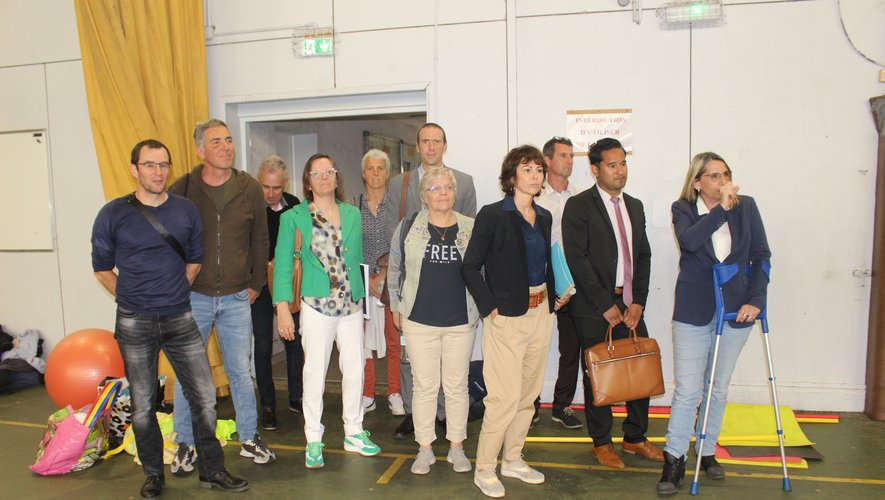Five colleges in the Hautes-Pyrénées are taking part in an experiment to promote the practice of sport among those who are furthest away from it. A success with 400 to 500 participants.
At the gymnasium of the school complex of La Serre de Sarsan, it’s snack time, between madeleines and gourds of compote. A dozen college students, educated in an Ulis device, for children with certain disabilities, are still red from the efforts they have just made. On this Thursday afternoon, they experimented with poull-ball. “A collective sport without contact which allows everyone to find their place”, specifies Mathieu Assemat, employee of the departmental committee for adapted sport.
Every week, college students who so wish now benefit from two hours of free sports during extracurricular time. A joint initiative of the Ministry of National Education and that of Sports, which comes to greet this Thursday the academic director of the departmental services of National Education, Anne Miquel-Val.
The opportunity for the academic inspector to draw up a more than satisfactory first assessment of this experiment, which today brings together around 400 to 500 college students, spread over five different establishments. A success that will lead to the proposal to be extended next year to a total of ten colleges.
For young people far from the practice of sport
It is therefore to encourage young people “far away from the practice of sport” that these 2 hours of sport in college have emerged, she explains. Priority is given to young people who are not licensed in any club, who are neither attached to the UNSS, nor to the sports associations of the establishments.
A system which has therefore enthusiastically joined the departmental committee for adapted sport, which focuses in particular on people with mental or psychological disabilities. Mathieu Assemat resumes: “We work a lot with medico-social establishments, but little with ordinary establishments.
Among these young people, the praise does not dry up. A variety of sports enjoyed, which they chose in part, and a small group format that works for them. One of them slips: “In class, there are a lot of us. Here, not everyone is shouting!”
Football, savate-forme or circus in Argelès
A format certainly adapted for these young people educated in the Ulis system but that each head of establishment thinks of to attract all college students. In Argelès-Gazost, the popularity of football has made it possible to recruit many young people; a mixture of French boxing and savate called savate-forme is very popular with young girls; the circus makes it possible to attract those who have an artistic sensibility. In Lannemezan, after having tried a number of activities, it is a question of returning to an hour of active walking.
Anne Miquel-Val concludes: “The goal is to build loyalty, to discover activities that they can extend to a club. It is an experiment that will go upmarket next year with around ten establishments in the Hautes-Pyrénées. But we already have excellent results!”

